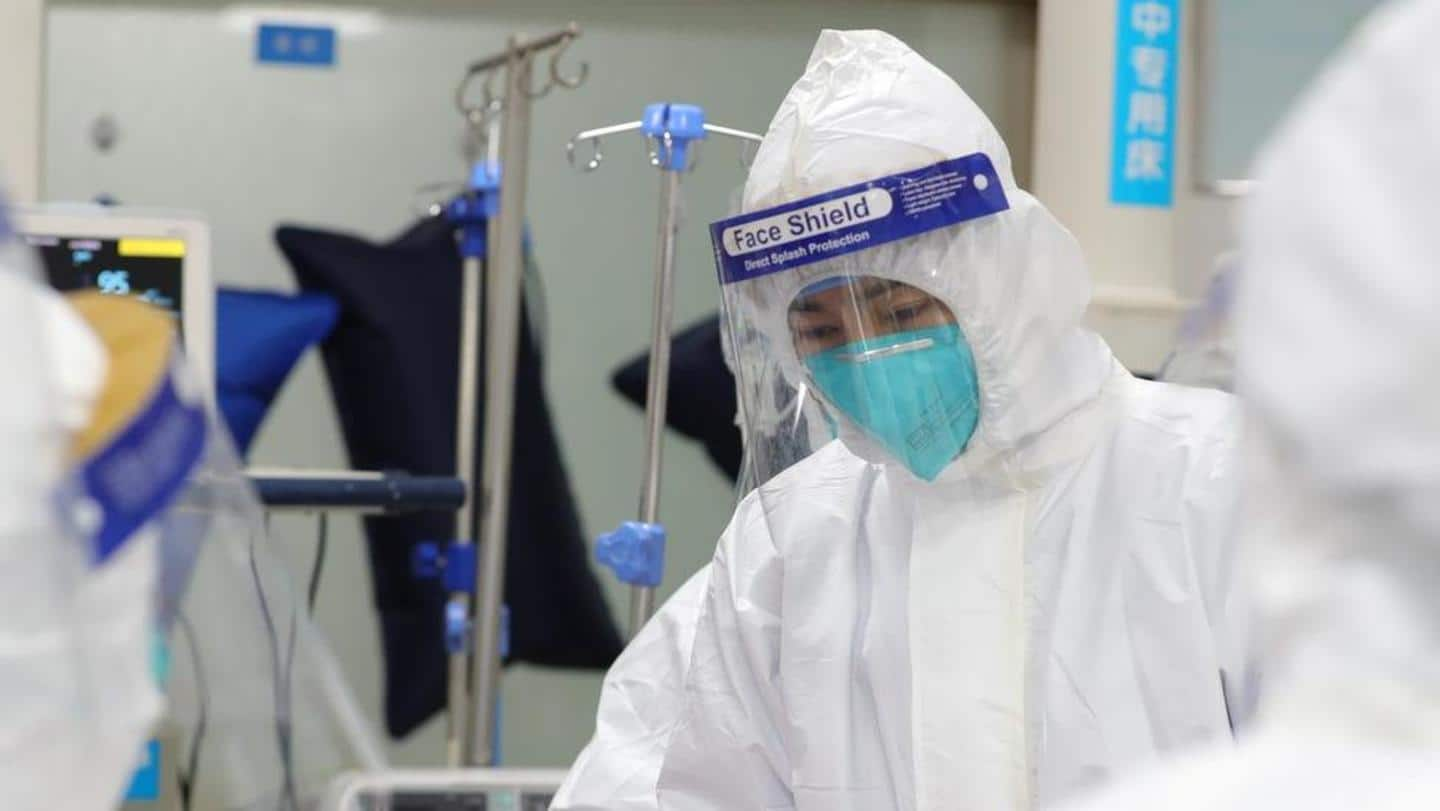
HK man gets reinfected by coronavirus: What does it mean
What's the story
A 33-year-old man in Hong Kong has contracted COVID-19 twice this year in what is said to be the first documented case of reinfection, according to preliminary research.
The man had been infected earlier this year in March and got reinfected in August, the study said.
The study assumes significance at a time when researchers are trying to develop vaccines against COVID-19.
Information
Second infection occurred 142 days after first occurrence
According to the pre-print study, the man's second case of COVID-19 occurred 142 days after the first bout. The University of Hong Kong said the study has been accepted for publication in the journal Clinical Infectious Diseases.
Case
Man had mild symptoms during first infection; asymptomatic during second
The 33-year-old had first tested positive for the virus on March 26, CNN reported citing the study. He experienced a cough, sore throat, fever, and headache for three days, the study said.
During the second infection, the man tested positive during entry screening at the Hong Kong airport on August 15 after returning from Spain via the United Kingdom. He remained asymptomatic this time.
Findings
Both infections involved different strains, study noted
According to the study, the first infection was caused by a coronavirus strain most closely related to the strains circulating in the United States or England while the second infection was most closely related to strains from Switzerland and England.
The study indicates that SARS-CoV-2 may persist in humans in spite of acquired immunity, much like the coronaviruses causing common cold, the researchers noted.
Quote
'Finding doesn't mean vaccines will be useless'
Meanwhile, Dr. Kelvin Kai-Wang To of the University of Hong Kong, who worked on the study, told Reuters, "The finding does not mean taking vaccines will be useless."
"Immunity induced by vaccination can be different from those induced by natural infection," Dr. To said, "[We] will need to wait for the results of the vaccine trials to see how effective vaccines are."
Information
Those previously infected should still get vaccinated: Researchers
Based on their findings, the researchers said that even people who have been infected should get vaccinated whenever a vaccine becomes available. They added, "Patients with previous COVID-19 infection should also comply with epidemiological control measures such as universal masking and social distancing."
Quote
Need to look at this at population level: WHO expert
Maria Van Kerkhove—World Health Organization's technical lead for coronavirus response and head of the emerging diseases and zoonoses unit—said during a media briefing in Geneva, "What I think is really important is that we put this into context."
She said, "There's been more than 24 million cases reported to date. And we need to look at something like this on a population level."
Quote
'Experience with other CoVs shows antibody response may wane'
Van Kerkhove said, "Even if this is the first documented case of reinfection, it's possible, of course, because with our experience with other human coronaviruses, the MERS-CoV and the SARS-CoV-1, we know that people have an antibody response for some time but it may wane."
Experts’ opinion
Experts say findings are 'not surprising', positive
Dr. Paul Hunter—a professor in medicine at the University of East Anglia's Norwich School of Medicine—said the findings are "not surprising" since the viruses involved in both infections were different.
He underlined that the reinfection occurred in a young and otherwise healthy person and that a mild illness may only generate mild immunity.
Other experts welcomed the findings since the second infection was weaker.